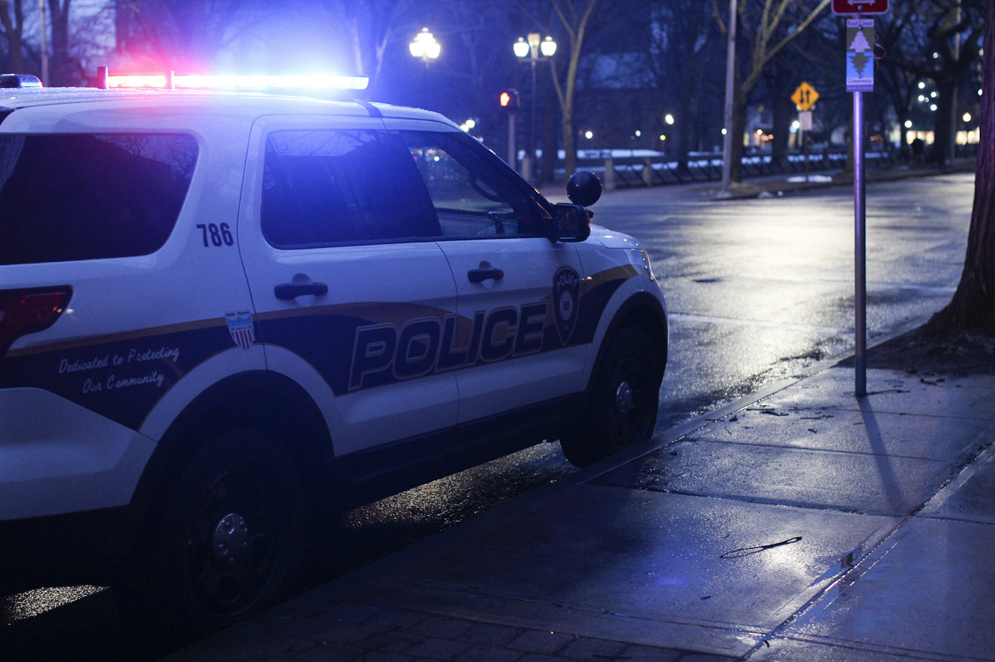
Yale Daily News
Since Thursday, more than 2,300 students and faculty members have signed a letter asking the University to declare the campus a sanctuary for undocumented immigrants.
The letter — penned two days after Donald Trump won the presidential election — urges Yale to protect undocumented students, staff members and their family members. While there is no legal definition of a sanctuary area, colleges and municipalities are considered sanctuaries when they enact policies or laws limiting the power of local law enforcement to assist the federal government in immigration proceedings. New Haven and Hartford — both considered sanctuary cities — forbid the collection of immigration data by local police and city agencies, while not reporting any undocumented immigrants to U.S. Immigration and Customs Enforcement.
Many of the letter’s signatories told the News they feared the president-elect might enact forced deportations and they hoped Yale would stand up for undocumented immigrants.
“[Since I am a] son of undocumented parents and the friend of students with similar circumstances, the election results affected my community and my family personally, making me fear for the physical safety of my loved ones,” said Jose Lopez ’18, who signed the letter.
Lopez added that he sometimes feels helpless knowing there is nothing he can personally do to prevent deportation. Still, he expressed his willingness to take action toward making Yale a sanctuary campus, in addition to signing the letter.
Were Yale to declare itself a sanctuary campus, it would signal lack of cooperation with Border Patrol agents and with ICE. According to the letter, becoming a sanctuary would prohibit the New Haven Police Department and ICE from removing any undocumented immigrants from Yale’s campus.
The move to turn campuses into sanctuaries dates backs several years. Sanctuary initiatives have cropped up on campuses including the University of California, Berkeley; University of California, San Diego; and the University of Michigan. However, in the wake of Trump’s presidency, these initiatives have gained traction, and similar petitions to the one at Yale have begun at University of Wisconsin-Madison, Brown University and Oberlin College.
“I see no reason to continue policies of criminalization against undocumented immigrants, especially policies that would detain and deport individuals that are making positive contributions to American society,” said Trinh Truong ’19, a signatory of the letter and a Vietnamese refugee. “I think all universities should act as sanctuaries for their students because it is a morally just thing to do. It is a horrifying prospect that policies like Deferred Action for Childhood Arrivals could be repealed; this would disrupt and uproot the lives of so many students innocently seeking better circumstances for themselves and their families.”
But despite it garnering over 2,000 signatures, not everyone at Yale agrees with the letter. In an interview with the state’s Fox 61 television channel, Mike Ogego ’20, an international student from Kenya, said he thinks Trump will not actually deport people because the president will not have that power.
However, Trump’s plan for his first 100 days in office states that under his administration, more than 2 million undocumented immigrants will be deported. He also plans to cancel federal funding to all sanctuary cities, including Washington, D.C., New York and New Haven.
In addition to the letter at Yale, a similar petition calling for the protection of New Haven’s sanctuary status has circulated in the last week.
“Our policies have not changed and will not change, and we don’t want [undocumented immigrants] to be afraid here in New Haven,” Mayor Toni Harp told NBC Connecticut last week.
Still, some undocumented students at Yale are less concerned about their own lives and more worried about the lives of their families.
“I don’t necessarily feel unsafe on campus among other students,” said Larissa Martinez ’20, whose high school valedictorian speech — in which she revealed her own, and her family’s, undocumented status — went viral last summer. “But my mom is back in Texas, my sister is back in Texas, and I’m more worried about that because what difference does it make if I’m here and they get deported. … It doesn’t matter if I’m here if they’re there.”
Martinez added that it would be amazing if Yale could be a safe haven, not just for its students, faculty and staff, but for their families as well.
According to the Pew Research Center, 2.4 million undocumented immigrants have been deported since President Barack Obama took office, more than any other U.S. president in history.







